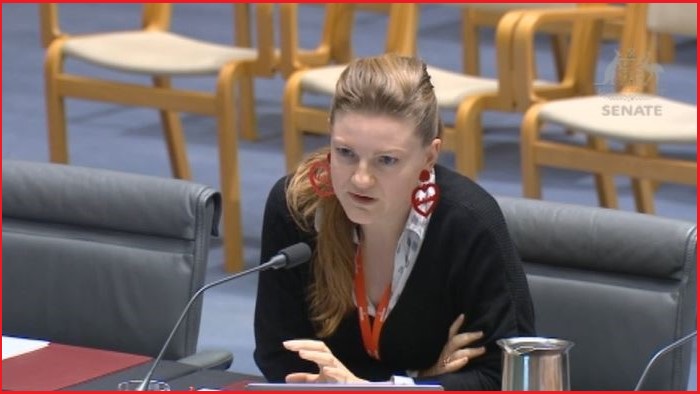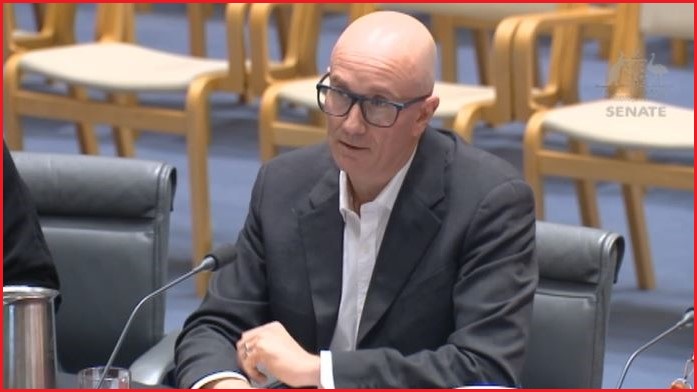Artificial intelligence is now a “direct threat” to Australian creative industries and stronger government regulation is urgently needed, a Senate committee has heard.
The Select Committee on Adopting Artificial Intelligence held a series of public hearings in Canberra this week.
On Tuesday, senators heard from representatives in the local creative sector, with significant concerns raised over the widespread copyright infringement associated with the development of generative AI, the use of AI to replace human creative workers, and the lack of legal protections.
Australian Writers’ Guild (AWG) group CEO Claire Pullen told the committee that generative AI models “rely on infringing Australian intellectual property”, which was damaging the ability of creative workers to make a living.
“AI is a direct threat to that income to our members,” Pullen told the hearing.
“We need a framework in place that allows us to discover if our members’ work has been infringed in the first place.”
A joint submission by organisations representing writers, screen editors, production designers and cinematographers previously told the committee that “the Australian creative sectors require unambiguous guidelines to encourage the use of only safe and responsible AI, reinforced by rigorous, forward-looking legislation to provide strong protections”.
‘Replaced with a digital version of yourself’
Representatives from the Australian Association of Voice Actors (AAVA) also appeared before the committee and described how large organisations and production companies were using “strong arm tactics” to force voice actors to sign contracts allowing for their voice to be turned into a digital clone to be reused in the future.
The AAVA said this was happening without the consent or permission of voice actors, further eroding the local industry.
AAVA president Simon Kennedy told the committee: “Productions are dangling the work that we need to pay rent, to feed our families and prepare for our retirement as bait to coerce us into giving consent for them to create our digital replacements.
“We are trying to resist but the pushback is constant and at times aggressive.
“They are using contracts that predate generative AI technology as assumed permission to train language models and create digital voice clones and there’s nothing in place to prevent it.”
AAVA president Simon Kennedy also addressed the Senate committee on Tuesday. Photo: Parliament of Australia
Kennedy said audiobook giant Audible, which is owned by tech titan Amazon, had been including “onerous” clauses in contracts with voice actors relating to the creation of digital versions of their voices.
“What we’ve found is contract clauses that leave the door open for that voice actor who is engaging at that time to read that particular audiobook … to be used and cloned to train that voice for use in future products,” he said.
“You might be replaced with a digital version of yourself and there’s no discussion about what kind of compensation might take place — it’s not an equitable solution.”
Companies accused of ripping off actors
The AAVA also provided a number of examples of digital versions of voice actors being used without consent.
One involved an Australian-based online animation series which allegedly “cloned” the voices of performers it had previously contracted to work on the show.
According to the AAVA, two voiceover artists signed a contract to provide voices for the show, but in early 2023 when they were three-quarters of the way through the project, these contracts were cancelled without a reason provided.
The two actors were unable to get the remainder of the contract paid out, and then discovered that new episodes of the show were being released using AI versions of their voices.
“Essentially these actors were replaced by digital versions of themselves,” the AAVA submission said.
“Crucially, none of the actors were told about the AI release, nor remunerated for their voices being replicated, or even asked for permission to have their voices cloned.”
The AAVA said it was also aware of at least one Australia radio network that was “actively investing in technology to replace human voice actors”.
It said this was a “disappointing move from a player in an industry that has relied on voice actors to bring quality, credibility and humanity to their medium for over 100 years”.
Another example given by the industry group involved a voice actor who signed a contract with an AI text-to-speech company to create a voice for sale then discovering that their voice was being used for pornography ads, despite the contract stating it would not be used for “profane and explicit content”.
The AAVA urged the committee to recommend a range of reforms to better protect the creative sectors from the harms associated with AI technologies.
“If we allow developers of AI to continue completely unfettered, the voice actor industry will spiral out of control, eventually operating at the hands of a few IT companies,” it said.
“Greater still, the consequences for every Australian who uses their voice could be catastrophic.”











